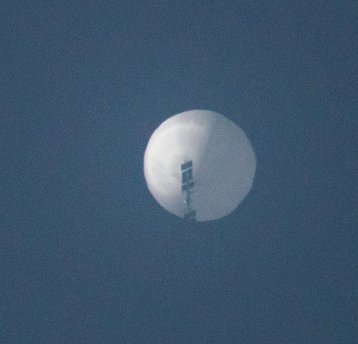Two of China's biggest mobile operators have reportedly withdrawn their involvement in the South East Asia-Middle East-West Europe 6 (Sea-Me-We 6) submarine cable project.
According to The Financial Times, China Mobile and China Telecom pulled out of the project last year amid rising geopolitical tensions with the US.
The 19,200km cable was first announced last year, and is set to link Singapore to Marseille, France, passing Italy, Greece, Egypt, Saudi Arabia, Djibouti, Pakistan, India, Maldives, Sri Lanka, Bangladesh, and Malaysia.
But growing tensions between the US and China over control over the infrastructure have led the two Chinese operators to pull out.
The reason for China's withdrawal is reportedly due to US company SubCom being awarded a contract to build the cable, rather than Hengtong Marine, China's biggest fiber cable provider in the sector, noted the FT, citing three sources. Hengtong in 2019 acquired a majority stake in Huawei Marine Networks, after US sanctions forced a sale.
It's a blow for the project, which isn't due to go live until 2025, with the two operators combining to invest 20 percent into the project, with the overall cable set to cost $500 million.
Set for 2025, the Sea-Me-We 6 cable is backed by a consortium including Microsoft, Orange, Telecom Egypt, Telekom Malaysia, Airtel, and -until now - all three of China's mobile operators. The other Chinese operator, Unicom, is still said to be involved with the project.
One member of the consortium described China Mobile and China Telecom's involvement in the project as "important but not critical."
China vs US... again
It's no secret geopolitical tensions have escalated between China and the US in recent years.
In 2021, a subsea cable set to connect the Pacific Island nations was scrapped after the US government warned that Chinese companies pose a security threat.
At the time, the World Bank-led project declined to award a contract for the East Micronesia Cable rather than let it go to Chinese cable company HMN (Huawei Marine Networks) Technologies.
Meanwhile, Facebook (now Meta) pulled out from the HKA project to build a submarine cable between California, Hong Kong, and Taiwan, as the US technology company felt pressure from the US.
“Due to ongoing concerns from the US government about direct communications links between the United States and Hong Kong, we have decided to withdraw our FCC application,” a Meta spokesperson said in a statement at the time about the planned HKA cable.
Scrutiny around Hong Kong has increased as the Chinese government steadily erodes the region's autonomy, and enacts increasingly restrictive surveillance and data laws, which has threatened the numerous tech companies that have opened data centers and offered services in the region.
In 2020, the White House set up 'Team Telecom' to evaluate foreign participation in US telecom networks. In June 2020, the team recommended that the FCC deny the 11,800km Pacific Light Cable Network cable extension to Hong Kong, the first direct US-Hong Kong cable.
In 2021, the Department of Justice group recommended approving a Google and Meta/Facebook cable between the US and Asia, but without links to Hong Kong.
Another point of concern was that, when the cable was first announced in 2016, the largest backer of the cable was Chinese-based Pacific Light Data Communications Co.
After some discussions, Google and Meta agreed that the PLDC will have restricted access to the infrastructure and information, and leave the Hong Kong section of the cable unused.
And some more times when China and the US have clashed...
This political battle has extended to chipsets too, with Japan and the Netherlands recently agreeing with the US on wide-ranging restrictions on exporting high-tech chipmaking machinery to China.
Telecoms equipment makers Huawei and ZTE were also added to Commerce Department and Federal Communications Commission lists that bans these firms from selling new equipment in the US, and bans US firms from selling to them.
In a statement at the time, FCC Chairwoman Jessica Rosenworcel said: "These new rules are an important part of our ongoing actions to protect the American people from national security threats involving telecommunications."
Meanwhile, China Telecom is also banned from operating in the US after the decision was upheld in December of last year. The FCC argued that the operator "is subject to exploitation, influence, and control by the Chinese government."
Most recently there's been scrutiny around the alleged Chinese spy balloons (and other flying objects) that have been spotted in the Americas, which the US government says can intercept and geolocate communications.
The balloon was shot down over the Atlantic this month. The Chinese government has maintained that the airship was simply a wayward weather balloon.
One senior State Department official claimed that the balloon was equipped with multiple antennas capable of "intelligence collection operations," and featured "multiple active intelligence collection sensors" as well as sensors for geolocating communications.


